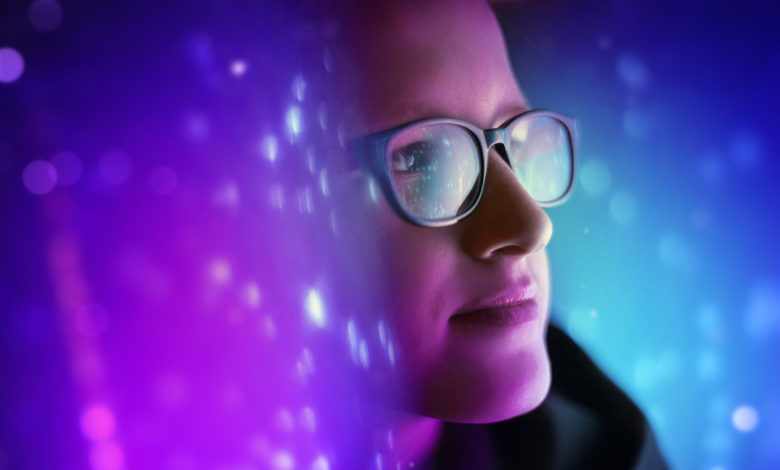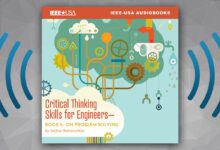
The human species hasn’t changed much in the past 150,000 to 200,000 years. The next ten years will bring unprecedented change; and we, as an exceptionally adaptable species, will adjust beautifully.
While debate is ongoing about the precision with which Darwinian Evolution describes the development, mutation and dominance of competing species, it remains clear that somehow the species that best adapts to the environment will tend to dominate.
Becoming the dominant species is not our only measure of success—and the deeper questions surrounding existential worth have probably preoccupied our species since we first wondered, “Why?”
Ultimately, if you trace the motives for any decision back far enough, you will arrive at “Because I feel it.” Increasingly, we are moving away from the presumption that the conscious mind has cold, rational control; and arriving at a concept of complete mind, where consciousness is a part of our total selves—but not the whole.
This recognition that Self is more than “conscious experience” is critical in our unfolding understanding of ourselves in our environment. While our trend is toward virtualizing human identity with digitally sampled representative avatars—with ever-increasing fidelity, it’s probably little more than marketing hype to suggest that a person could be meaningfully turned into a facsimile in the next ten years.
That is not to say our avatars will not be compelling, identifiable, or impactful.
The point is: We do not really, fully know what we are; who we are; where we are; why we do anything; or why anyone else does. We don’t know what is going on; what we want; what we fear; or what we love. We’re not sure we have chosen the right words when we speak; or whether the person we are listening to did. We don’t seem to be sure how to determine something’s value; or how to achieve anything we haven’t achieved before. We don’t know how to be peaceful—or even how to perform things well that are traditionally considered to be autonomic—like sleeping, or breathing. People get those two “basic life skills” wrong frequently.
We do know that we have feelings, and those feelings are a medium for our non-conscious total minds to convey understanding to our conscious minds.
What does this have to do with the future?
We are an extraordinarily adaptable species—one that detects patterns, without realizing we are doing it. We mimic successful demonstrations without conscious effort; and we usually fit in with our environment automatically. So, we will adapt to the increasingly digitized experience of our world, but that world is not the whole of us. Virtualization has limits—for now at least—and though much of our behavior can be managed and influenced algorithmically, not everything can.
Perhaps the most important components of our humanity need human touch, authentic emotional connection, and acceptance. That last part, acceptance, is not passive or apathetic. It is the starting point for change. One cannot see clearly, if one’s perspective is clouded by value-judgement. It is only without value-judgement that one can see what is; and decide with lucidity if, and how, things ought to change.
Our fundamental needs have not changed. Maslow’s Hierarchy of Needs remains a helpful guide for our priorities. The trends I describe in the new IEEE-USA e-Book, What Will Our World Be Like in Ten Years—Book 1: Emerging Trends (IEEE members can download for free), serve some facets of the human experience better than others do.
The question is: What will we do with our enhanced individual and collective empowerment (for which we will have to thank A.I, automation, and biology-modifying life sciences)? If you knew you would live forever—happy, healthy and well—what would you choose to do with your days?
This question of existential uncertainty lies at the root of our major future challenges. It is also, perhaps, a key that could unlock our next era of extraordinary progress.
“What to do?” is quite close to “What am I?” To answer the former question, we must first answer the latter. When an individual understands what they are, they can then plot the changes required to become what they would wish to be.
With self-knowledge, we can reword our first question in a longer form, as “What to do, in order to become what we would wish to be?”
Let’s hope we all make apt decisions about our needs and purposes; and find a way to create a “Goldilocks” future for ourselves, our world, and beyond.
Maxim Jago is a keynote speaker, film director, futurist and author. Jago speaks on wide-ranging subjects—exploring lessons learned from his work as a filmmaker, futurist, author, and media technology expert. He proposes an optimistic-realist attitude to future technologies; and opportunities for growth in society, and in ourselves.







Arguably, we HAVE changed considerably over the millenia. Given our level of adaptability, our “programming” is a big part of us – language, culture, relationships – and those have clearly evolved considerably. Just the act of learning a skill, changes our neural pathways, and our musculature – if we’re all doing the same things, we all move in that direction. Diet & environment affect our biology, and our neurology, and as our environment has changed, we’ve changed with it. Beyond that, there’s the notion of the bicameral mind – some good evidence that we used to hear voices in our head, which we interpreted as the voice of god(s) – these days as Schizophrenia.
And.. it might be argued that part of our success is not just that we adapt our environment to us, but that we adapt our environment to us. (Can you say “Anthropocene?”)